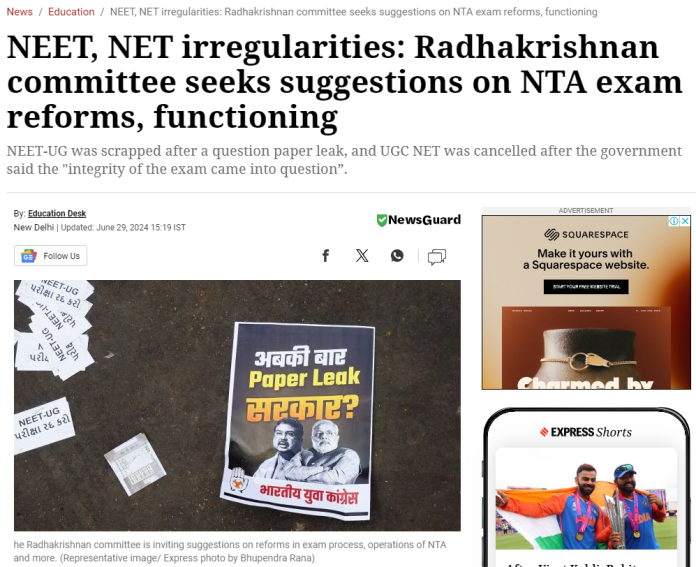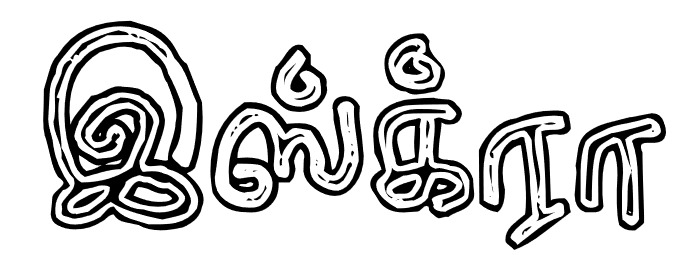NTA மீதான ஆய்வுக் குழுவிடமிருந்து பொதுக் கருத்துக் கேட்புக்காக தளம் திறக்கப்பட்டிருக்கிறது. ஜூலை 7ஆம் தேதிக்குள் உங்களின் பொன்னானக் கருத்துக்களை கமெண்ட் பாக்ஸில் உள்ள இணைப்பில் சென்று பதிவிடுக.
என்னைக் கேட்டால் ஒரேயடியாக இழுத்து மூடிவிட்டுப் போ என்று சொல்வேன். ஆனால் சாத்தியப்படாது என்று தெரியும். ஆகவே Effective ஆன உங்கள் கருத்துக்களை அயற்சிப் பார்க்காமல் உட்கார்ந்துப் பதிவிடுங்கள். நான் தேசியத் தகுதித் தேர்வு குறித்து மட்டும் எழுதியுள்ளேன். கருத்துக் கேட்புப் பெட்டிக்குள் வெறும் 350 வார்த்தைகள் கூட பதிவுசெய்ய முடியவில்லை. ஆகவே சுருக்கமாக எழுதுங்கள்.
நான் எழுதிய நீண்ட பரிந்துரையை மாதிரிக்காகவும், புரிதலுக்காகவும் பதிவிடுகிறேன்.
-Suggestions to NTA-
Satheesh Kumar S.
Research Scholar, UGC NET JRF Fellow,
Department of Tamil,
Bharathiar University,
Coimbatore – 641046.
E-Mail ID : ********************
1. Current Issue: NTA often releases notifications at inconsistent times, frequently as late as 10:00 PM. This unpredictability causes anxiety and sleeplessness among candidates.
Suggestion: NTA should establish a fixed and reasonable schedule for releasing notifications, such as during standard office hours (e.g., 9:00 AM to 5:00 PM). This will help candidates plan their schedules better and reduce undue stress.
2. Current Issue: NTA frequently changes its policies and screening techniques from one exam to another, causing confusion and frustration among candidates.
Suggestion: NTA should adopt a consistent and standardized screening procedure for all exams. Implementing a uniform set of guidelines will ensure fairness, clarity, and reduce last-minute stress for candidates.
3. Current Issue: NTA’s recent decision to revert to pen and paper exams is a regressive step. Conducting exams in CBT (Computer-Based Test) mode not only provides quicker result processing but also allows candidates to preview their answer keys. The shift to pen and paper could lead to delays and reduced transparency.
Suggestion: NTA should continue to conduct exams in CBT mode. This approach ensures timely result publication, allows candidates to review their answers, and maintains the integrity and efficiency of the examination process.
4. Current Issue: The cost for challenging a question in NTA’s exams is excessively high at Rs. 200 per question. This fee is burdensome for candidates and discourages them from raising valid concerns.
Suggestion: NTA should reduce the challenge fee to Rs. 50 per question. This adjustment will make the process more affordable and encourage candidates to engage in fair and transparent evaluation.
5. Current Issue: NTA often provides approximate dates for exams and results, leading to uncertainty among candidates. Additionally, candidates sometimes face inconvenience due to the allocation of exam centers far from their home states and cities.
Suggestion: NTA should announce and adhere to specific, confirmed dates for all exams and results. Furthermore, exam centers should be allocated within candidates’ own states and cities whenever possible to minimize travel-related stress and expenses.
6. Current Issue: The current question patterns used by NTA, such as “arrange in chronological order,” may not fully assess candidates’ knowledge and understanding in a meaningful way.
Suggestion: NTA should establish a high-level committee to review and reform the question patterns. The committee should aim to develop diverse and comprehensive question types that better evaluate candidates’ critical thinking, analytical skills, and subject knowledge.
• Feedback Mechanism: Implement a robust feedback mechanism where candidates can provide constructive feedback after each exam regarding their experience, difficulty level of questions, and suggestions for improvement.
• Training for Exam Conductors: Provide regular training and workshops for exam conductors to ensure they adhere to standardized procedures and maintain professionalism during exams.
• Accessibility Measures: Introduce accessibility measures such as provision for candidates with disabilities, including appropriate facilities and accommodations during exams.
• Transparency in Evaluation: Ensure transparency in the evaluation process by providing clear guidelines on how answers are evaluated, and allowing candidates to access their evaluated answer scripts if requested.
• Technology Integration: Continuously upgrade technological infrastructure to enhance the efficiency of exam processes, including registration, admit card issuance, and result declaration.
• Ethical Conduct Guidelines: Establish clear guidelines and ethical standards for all stakeholders involved in the examination process, including examiners, administrators, and support staff.
• Stakeholder Consultation: Conduct regular consultations with stakeholders including candidates, educators, and experts to gather feedback and incorporate suggestions for continual improvement.
• Public Awareness Campaigns: Launch public awareness campaigns to educate candidates about exam procedures, eligibility criteria, and important dates to minimize confusion and misinformation.
Clich here to submit your suggestions.




